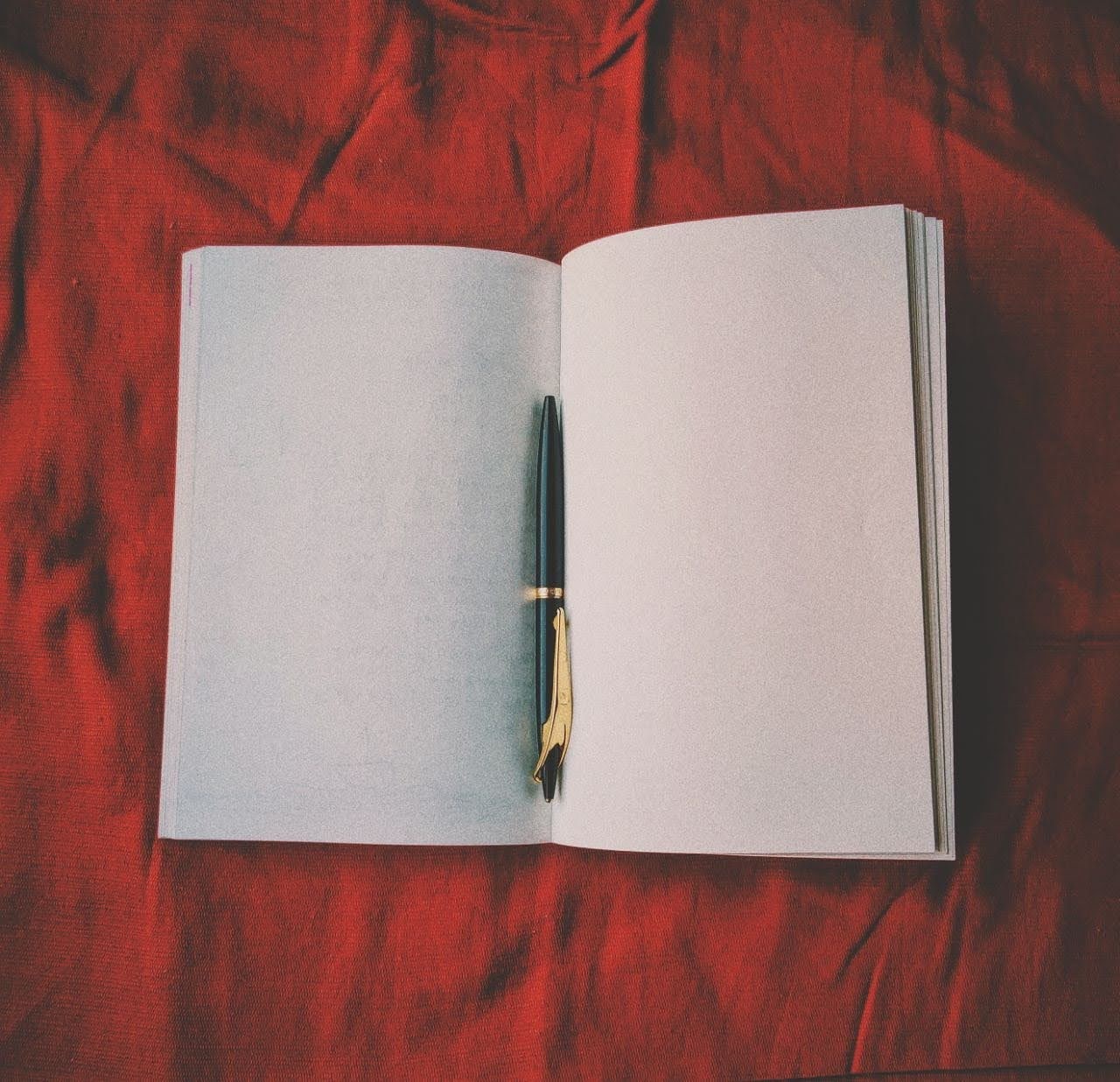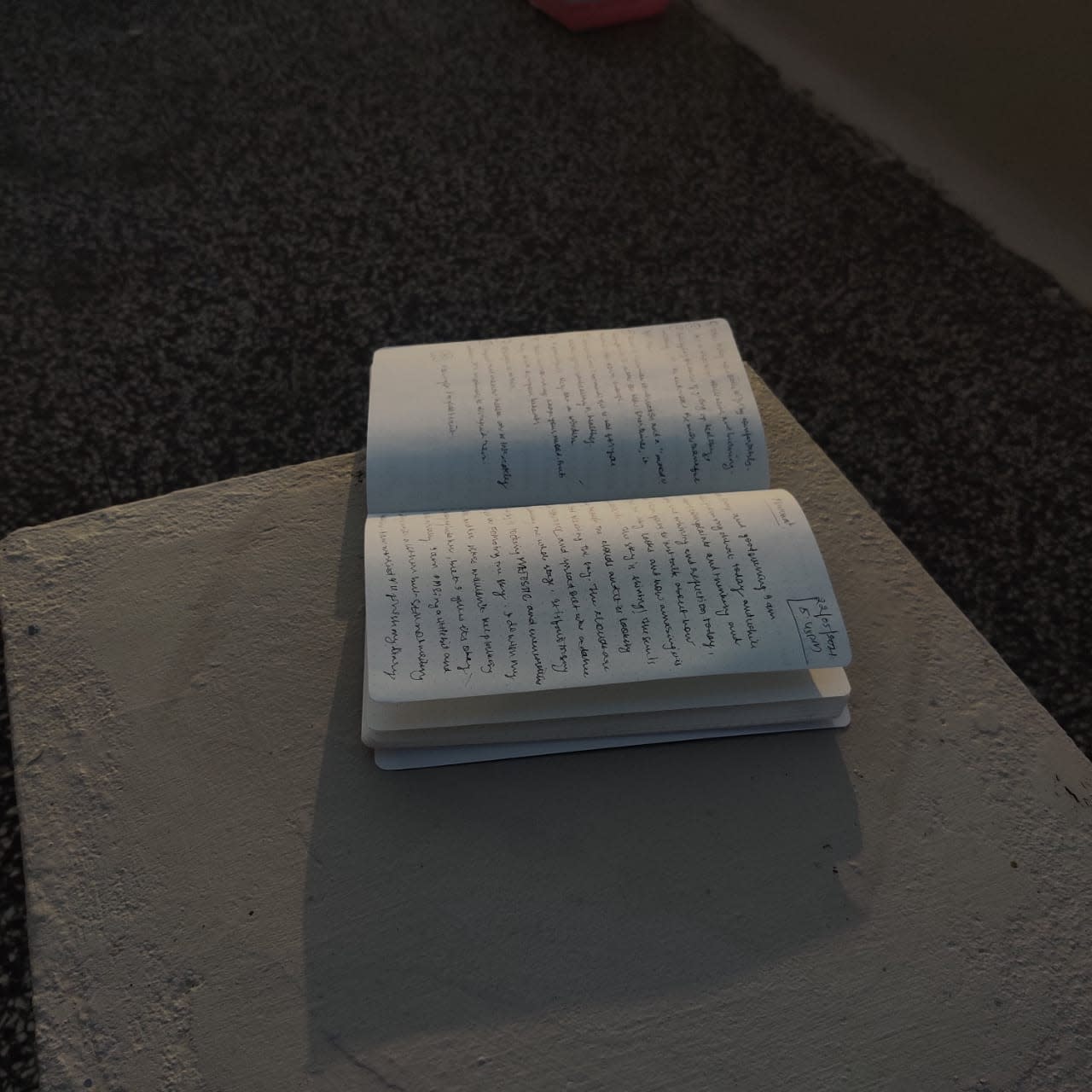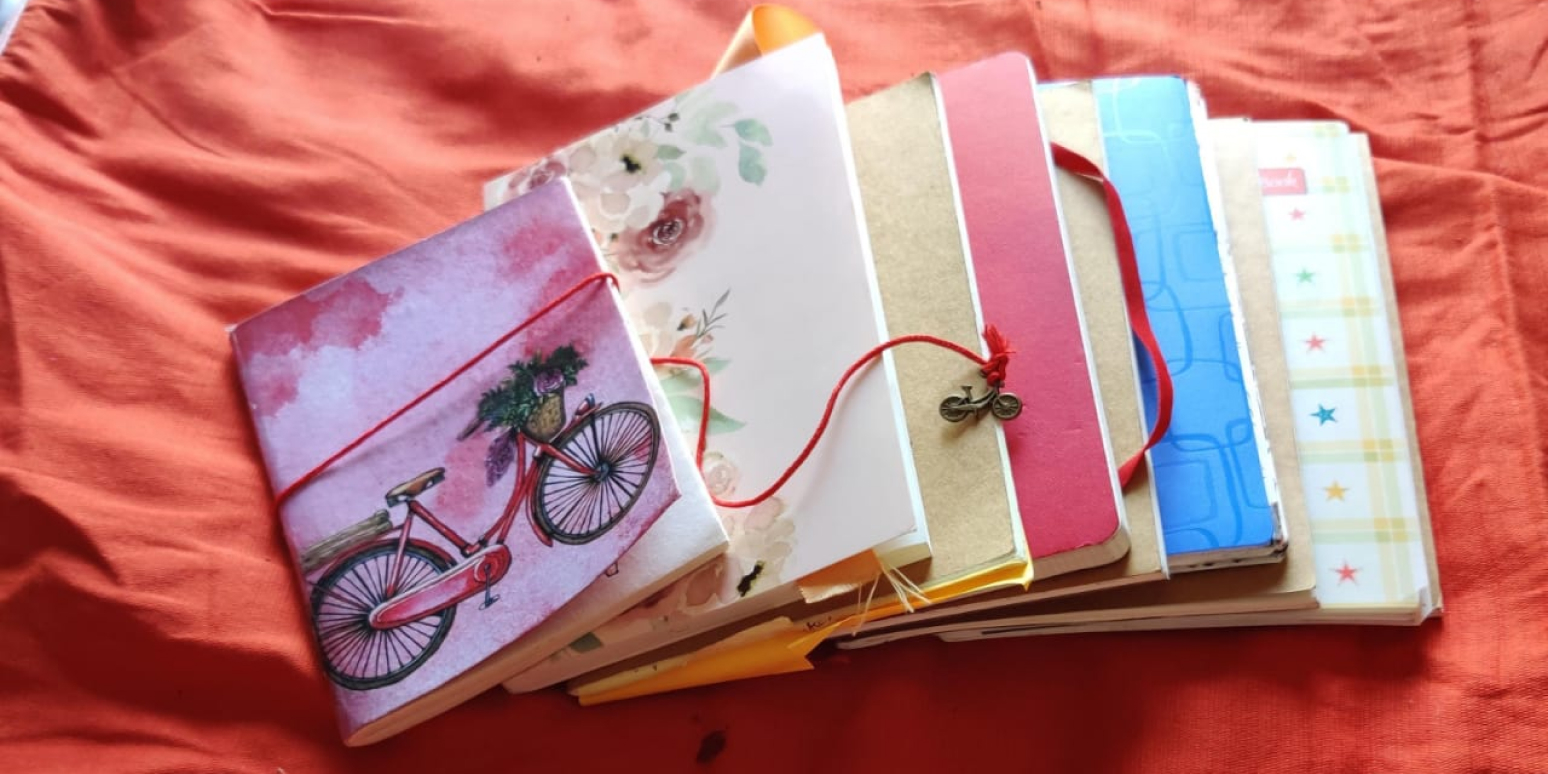A lot was going on. My business was booming, COVID was in full swing, and I had to cancel my plans to move. There was constant rattling and chattering in my brain. So I started using morning pages—a ritual I learned about from Julia Cameron’s book, The Artist’s Way.
What are morning pages?
Morning pages are brain dumps: three pages straight, first thing in the morning. It’s stream-of-consciousness writing. The point is to write every thought that comes into your head and hold nothing back—even if that thought is, “I don’t know what to write in these morning pages. They seem kind of pointless.” (Copy-pasted from my first morning page session.)
It’s as simple as it sounds.
How to do morning pages
To do morning pages, you start with three standard-sized pieces of paper. I use a notebook.

Buster Benson designed a website, 750 words, specifically for writing morning pages on a computer, but Cameron insists on longhand instead of typing: “Velocity is the enemy. It takes longer to write by hand, and this slowness connects us to our emotional life.” I find I’m more honest when writing by hand. It can be cumbersome in the beginning, but it gets easier with time.
4 self-care workflows to get through hard times
Don’t be fooled by the writing part of the process. Morning pages aren’t a tool for improving your writing. They aren’t for writers only, and they definitely aren’t a form of art. In fact, Cameron seriously encourages you to keep your morning pages private—you don’t even need to go back and read what you wrote at any step, so you have an audience of zero.
Write whatever comes to mind—weird, funny, boring, banal, insightful, dull. There’s no right way to do morning pages. There are only two rules:
-
Do morning pages first thing in the morning because that’s when they serve you best.
-
You can’t give up midway if you run out of topics to write about. Instead, write, “I don’t know what to write about,” and continue until you finish your three pages.
Morning pages benefits
Morning pages have become one of my core mindfulness practices—and it’s the one self-help practice I’ve been able to stick with consistently. Here are the benefits I’ve noticed.
1. Morning pages help me clear my head
When I wake up, I often swim in yesterday’s thoughts. How can I get ahead of this project? Will I be able to make the deadline? What can I do to resolve that problem? It gets noisy. Writing everything first thing in the morning takes that weight off my shoulders and empowers me to take on the day with a clear mind.
From small, distracting thoughts, like remembering to buy apples during my grocery run, to more significant worries about my career—I write all the ramblings that might otherwise hijack me from my day.
(P.S. It feels even better to write your morning pages outside in fresh air and sunlight!)
2. Morning pages prevent me from spiraling
I tend to obsess over the things causing me anxiety—even if they aren’t in my control or they’re too far-fetched to ever translate to reality. Going on a brain loop of these worrisome thoughts holds me back from deep focus and enjoying the present moment.
But since I’ve started practicing morning pages, I notice my anxious demons have quieted significantly. Writing my spirals allows me to sit with these emotions and process them. It’s liberating to have no rules to follow, no solution-hunting, and no striving toward success or failure.
3. Morning pages give me space for self-reflection
Maybe the biggest benefit I’ve gotten from morning pages is insight into my own brain. I’ll admit that this one took a bit of time and consistency, but my persistence has paid off.
For example, I struggled for three months with a client, but I couldn’t put my finger on what was off. One day, while I was writing about it in my morning pages, I realized the problem (not loving the topics I’m assigned) and could take steps to resolve it (pitching new ideas myself). I had this epiphany on page three of my morning pages, which is a good indication of why it’s important to stick to the whole thing.
4. Morning pages help get the creative juices flowing
Epiphanies aren’t uncommon with morning pages. Some of my best ideas have come through morning pages—whether it was naming my newsletter or giving my best friend a perfect birthday present. Why? Creativity requires discipline, and sitting in your chair to do morning pages every day gives you that discipline you need.

5. Morning pages squash my impostor syndrome
My impostor syndrome keeps shouting, “You didn’t nail that project; they’re just being nice.” Or worse: “Why are you proud of yourself for achieving this? It was a simple stroke of luck.” The result is unattainable standards of perfectionism and doing more, more, and more until I feel like I’ve done enough (which is either never or until I’m burned out).
During morning pages, there’s no time to judge myself because I have to freeflow. There’s no standard I have to meet and no room for self-criticism.
3 mistakes to avoid with morning pages
Writing morning pages is a pretty straightforward process, but I’ve made a few mistakes here and there.
1. Don’t expect eureka moments every day
When I began writing morning pages, I assumed I’d get a jolt of inspiration or insight each day. It’s hard not to set your expectations high with the results Cameron promises in her book. So when some days didn’t provide that flash of magic, I was disappointed and frustrated—wondering what I was doing wrong.
Slowly, I realized it’s unrealistic to expect morning pages to provide me with those eureka moments every day. The pages became easier to fill, and the notebooks started stacking up. It took a whole month for me to start seeing significant shifts in my perspective and mood—so trust the process. It’ll pay off.
2. Don’t redact yourself
The bit I battled the most with was how to be uncensored in my morning pages. I’d frequently catch myself editing my thoughts before writing them or taking moments to pause to censor an uncomfortable feeling.
The harsh truth? Cheating this way hurt only me. I’d continually hit a wall and face the same problems repeatedly. To get the most out of morning pages, you need to be yourself—honest, authentic, and raw.
3. Don’t stop when it gets uncomfortable
It’s still very common for me to struggle to fill the last 1.5 pages—but I know that’s when I’m sitting on the cusp of an important observation about myself or my situation.
Cameron acknowledges this in the book and encourages readers to push through: “The second page and a half comes harder, but often contains paydirt,” she says. “Often the last paragraph brings insight and breakthroughs.”
Often the last paragraph brings insight and breakthroughs.
Julia Cameron, author of The Artist’s Way
Not giving up is also true for the days you don’t feel like showing up at all. Write your morning pages anyway. You can incentivize the habit by setting rewards for yourself. For instance, I put an X on my calendar every day I write, and at the end of each month, I reward myself for not breaking the streak—sometimes even with a new notebook.
3 pages a day is all it takes
From entrepreneurs like Tim Ferris, Chris Winfield, and Nicky Hajal to productivity authors like Oliver Burkeman—lots of people swear by the benefits of morning pages.
The first time might feel awkward or aimless, but stick with it. The more you practice morning pages, the easier they become. For me, morning pages work like a form of meditation. I feel like a rational observer of my thoughts and emotions rather than letting them rule me. It’s become a keystone habit I wish I’d started sooner.
Try it—three pages a day for a month. What’s to lose?
[adsanity_group align=’alignnone’ num_ads=1 num_columns=1 group_ids=’15192′]
Need Any Technology Assistance? Call Pursho @ 0731-6725516







